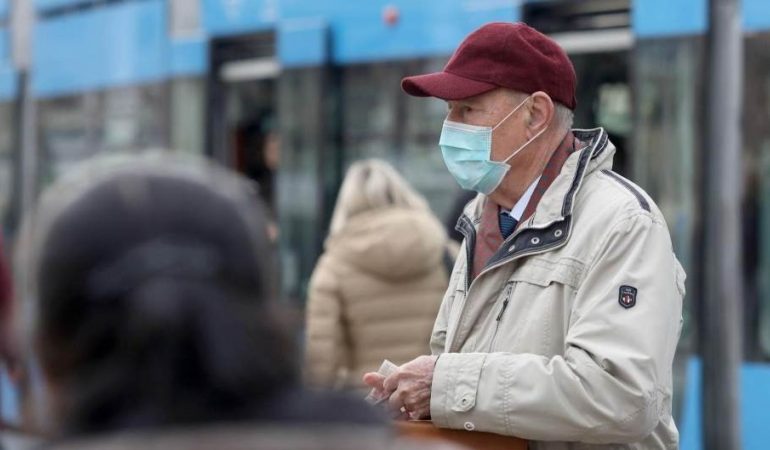Croatian Prime Minister Andrej Plenković told Euronews Now that there is no “hardship” in his country because of the COVID-19 pandemic.
Plenković said that fewer than 20,000 people have become unemployed since the outbreak of the virus, which he said was “very little compared to the numbers we have witnessed in other countries.”
“Our measures were swift and very forthcoming and efficient and have made excellent economic results so far.
“What we intend to do with these measures is to alleviate the pressure on our economy and the estimation that our GDP is going to drop by several per cents,” he added.
“The EU should be helping not only Croatia but all of the member states in this time of crisis. We would show that a common European approach can deliver once it’s needed.”
Croatia started easing restrictions put in place to limit the spread of the disease. This will be done in three different phases.
In the first, starting on April 27, businesses with little close contact between people (including bookstores and museums) will reopen. But barbershops or cosmetics shops, as well as shopping centres, will remain closed.
If the first phase “proves successful”, a second one will kick off on May 4. The public health system will resume normal operations, as will the private health sector. Barbershops and similar business activities will reopen.
In the third phase, scheduled for May 11, people will be allowed to gather outdoors (“respecting physical distance measures”), shopping centres will reopen and domestic flights will be reintroduced.
Economic measures ‘enough’ to overcome the crisis, but only in the short term
The IMF has estimated Croatia will suffer a 9% drop in its GDP.
Maruška Vizek, director of the Economic Institute in Zagreb, told Euronews that the government measures to stem the economic crisis are “substantial”, but warns their usefulness will be short term – “two or three months”.
According to Vizek, the government so far has been relying only on its domestic resources, borrowing from its commercial banks too, but it is debatable Croatia can overcome a long term crisis without the help of the International Monetary Fund or issuance of Euro Bonds.
The government’s financial aid includes a direct €650 wage subsidy to those entitled (500,000 have applied so far), postponement of VAT payments and a loan guarantee scheme for businesses resulting in more favourable interest payments.
Furthermore, Croatia’s central bank, following a recommendation from the Euro Banking Association (EBA), allowed the postponement of bad loan provisions, thus giving room to offer and approve moratoriums (suspension of interest repayment or suspension of loan repayment altogether).
Tourism sector looking at ‘corridors’ for next holiday season
Croatia’s tourism sector, which accounts for 20% of the GDP, was particularly badly hit by the pandemic.
However, the country is exploring the possibility of bringing in Czech visitors next summer with “tourist corridors” to Croatia.
Czech tourists, who will have to obtain a health certificate showing that they are not infected, would be allowed to travel to Croatia by air or by road, Croatian media said.
“We have already discussed with the Czech Republic (the fact) that they are preparing their proposals and that we are preparing ours,” Gari Cappelli, Croatian Minister of Tourism, said on public radio HRT.
“We are dependent on foreign tourists” who account for 90% of the sector’s revenues, he added.













